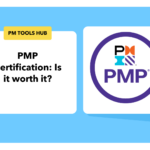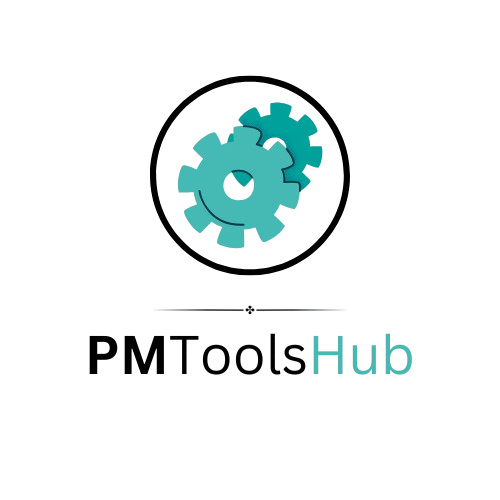
What Does a Project Manager Do?
After more than 15 years of working as a project manager across industries, I can confidently say there is no single definition that perfectly captures what a project manager does. Every project is different, every industry presents its own challenges, and every team requires its own approach. Yet, there is a core foundation that applies across the board—and mastering that foundation is what allows project managers to thrive regardless of the project type.
Table Of Content
- Defining the Role
- A Project Manager’s Toolkit: Essential Skills
- Communication
- Organization
- Adaptability
- Leadership
- Risk Management
- Problem Solving
- The Value of Education and Continuous Learning
- Relevant Education Paths
- Certifications That Help
- Industry-Specific Nuances
- What Makes a Great Project Manager?
- Final Thoughts
Defining the Role
At its core, a project manager (PM) is responsible for driving a project from concept to completion. This involves planning the work, coordinating team members, managing timelines, mitigating risks, ensuring quality, and keeping stakeholders informed. On paper, this sounds relatively straightforward. In practice, it’s anything but.
The role shifts dramatically depending on the nature of the project. Managing the development of a multilingual website requires different strategies than overseeing the creation of a new advertising campaign for a Fortune 500 brand. I’ve done both, and while the underlying principles of communication, organization, and accountability remain the same, the tools, workflows, and challenges change completely.
A Project Manager’s Toolkit: Essential Skills
In my experience, there are a handful of skills that every great project manager needs, regardless of industry. These are not optional; they’re essential:
Communication
A project manager’s ability to communicate clearly can make or break a project. You’re the central hub between teams, clients, vendors, and leadership. Whether it’s defining the project’s scope, translating technical requirements into plain language, or resolving a misunderstanding between departments, communication is your most important tool.
In global teams, communication becomes even more critical. Cultural differences, language barriers, and time zones add layers of complexity. Managing creative teams in New York while coordinating development teams in Europe requires intentional, thoughtful communication.
Organization
The sheer volume of moving parts in any project—deadlines, deliverables, dependencies—means that strong organizational skills are a must. In my early days as a PM, I relied heavily on spreadsheets and email chains. Today, I lean on sophisticated project management tools like ClickUp, Asana, and Trello, but the fundamental organizational mindset hasn’t changed.
Adaptability
If there’s one certainty in project management, it’s that things will change. Timelines slip, client priorities shift, new requirements emerge halfway through a sprint. Being able to adjust plans without losing sight of the end goal is a critical skill.
This adaptability is particularly important when switching between industries. A software development project might use Agile sprints, while a translation project might follow a more linear process. Flexibility is key.
Leadership
Project managers are not just administrators—they’re leaders. Even if you have no formal authority over team members (which is often the case), you’re responsible for keeping everyone aligned and motivated. That means understanding team dynamics, recognizing individual strengths, and fostering a culture of accountability.
This becomes even more nuanced in creative projects, where managing creative talent requires balancing structure with creative freedom. In my work with top NYC agencies, I’ve found that creative teams often resist rigid processes, so you have to lead with influence rather than authority.
Risk Management
Every project carries risks—missed deadlines, unexpected technical challenges, scope creep. A project manager must identify potential risks early, develop mitigation plans, and keep stakeholders informed. Proactive risk management can mean the difference between a minor hiccup and a full-blown crisis.
Problem Solving
No matter how well you plan, problems will arise. Vendors will miss deadlines, creative assets will get rejected, technology will fail. A great project manager doesn’t just escalate problems—they solve them. This requires creativity, resourcefulness, and a calm mindset under pressure.
The Value of Education and Continuous Learning
When I started my career, formal project management education wasn’t as common as it is today. I learned many lessons on the job—sometimes the hard way. That said, formal education and certifications can give new project managers a strong head start.
Relevant Education Paths
- Degrees in Business Administration, Management, or related fields.
- Specialized programs in Project Management (offered by many universities today).
Certifications That Help
While certifications aren’t mandatory, they can provide valuable frameworks and increase your credibility. Popular ones include:
- PMP (Project Management Professional) — great for traditional, structured projects.
- Certified ScrumMaster — ideal if you work in Agile environments.
- PRINCE2 — widely recognized in Europe.
However, certification alone doesn’t make you a good project manager—it’s how you apply what you learn that counts.
Industry-Specific Nuances
One of the most fascinating parts of project management is how different every industry can be. In software development, you work with developers, QA teams, and product owners. In creative projects, you work with designers, copywriters, and clients’ brand teams. In translation projects, you’re coordinating linguists, localization engineers, and cultural consultants.
Each environment comes with its own language, expectations, and challenges. Yet, the foundational skills—communication, organization, leadership, adaptability—apply every time. The best project managers know how to adapt their approach without losing their core foundation.
What Makes a Great Project Manager?
After 15 years, I’ve learned that the best project managers are not those who memorize every project management theory or who follow a rigid process by the book. The best PMs are the ones who:
- Stay calm under pressure.
- Communicate with clarity and empathy.
- Balance structure with flexibility.
- Take ownership—of the process, the outcome, and the team’s well-being.
- Continuously learn and adapt, knowing no two projects are ever the same.
Final Thoughts
So, what does a project manager do? We connect the dots. We anticipate problems before they surface. We translate between business goals and technical realities. We protect the team from unnecessary chaos while ensuring stakeholders get the results they expect. Most importantly, we create the conditions for success, even when conditions are constantly shifting.
It’s a challenging role—but if you thrive on variety, enjoy solving problems, and believe in the power of organized collaboration, it’s also one of the most rewarding careers you can pursue.
Please share this article if you like it!








